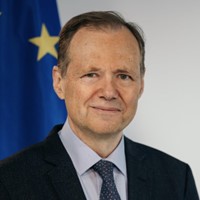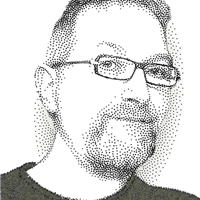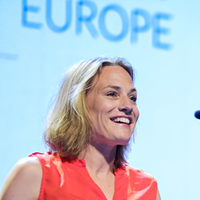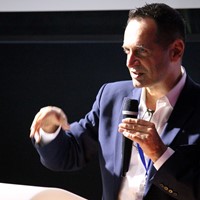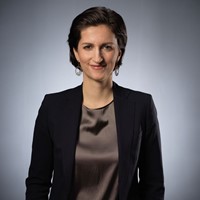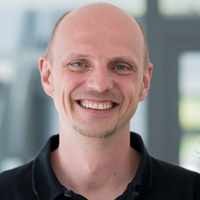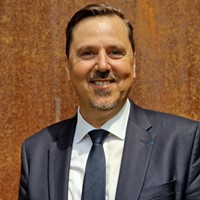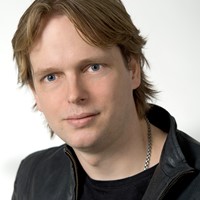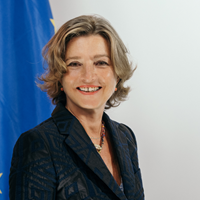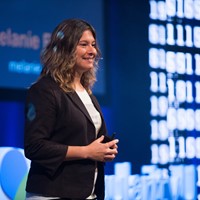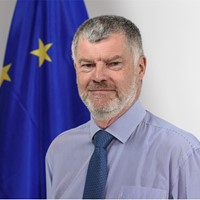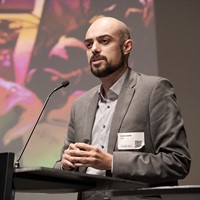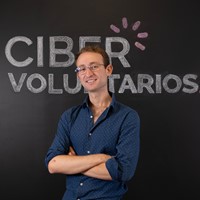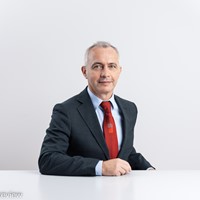Registration and networking
Opening and welcome remarks
Keynote from the European Commission
Inspirational Talk: Digital Commons: a pillar for building a European and International digital public space
Digital commons are keystones of the digital revolution: they are crucial in fostering collaboration, innovation, and the equitable distribution of knowledge and resources in the digital area. As the birthplace of many protocols and open standards, Europe has a long tradition with digital commons.
PLENARY 1 : Towards Digital Commons: Charting the Course for Europe's Digital Future
Digital commons – non-rivalrous and non-exclusive resources defined by distributed and communal production, ownership and governance of informational capacities and technologies – have great potential to play a crucial role in making this vision reality. With a big part of free and open-source software, hardware, standards, and data fitting this definition digital commons power a large part of the internet infrastructure and servers and can be considered key components of modern digital infrastructure. This call for a reflection of their impact on the future developments of the internet and key aspects such as security, privacy, and the strategic value of digital commons in building a human-centric and trust-worthy digital future for all that is at the heart of the European Declaration on Digital Principles and rights.
The panel will discuss the opportunities and challenges in the development and maintenance of digital commons in Europe, the current investment schemes at national and European level and the possible avenues for a European approach to stimulate further the existing community of ‘commoners’.
Moderated by Monique Calisti, CEO, Martel Innovate
Coffee and networking break
PLENARY 2 : Shaping Digital Identity and Credentials in the Web 4.0 Era: Empowering and Safeguarding Individuals in the Online World
Three European Commission’s flagship initiatives – the European Digital Identity (EUDI) Regulation, reinforced by the European Blockchain Services Infrastructure (EBSI), and the Next Generation Internet (NGI) – have great potential to boost the adoption of digital identities across Europe and to prepare for future implementation. Driven by a common set of values, they aim, among others, to shape a user-centric digital identity and establish an enabling ecosystem for the Web 4.0 era.
The panel will explore whether – and how – the three initiatives could steer technological developments towards social and environmental good, ensuring that digital identity solutions empower and protect users in the EU and across the globe, leading to a safer, more connected, and sustainable world for all.
The invited experts will examine potential synergies between the initiatives to reinforce the adoption of digital identities across Europe and facilitate cross-border services while prioritising inclusion, user protection and privacy. The panel will furthermore explore future evolutions of digital identity, challenges and ways to shape a user-centric digital identity ecosystem for Web 4.0 that would foster trust and confidence in the digital realm globally.
Moderated by Alex Grech, Executive Director, The 3CL Foundation
PLENARY 3 : Open Web Search and Large Language Models and Beyond: Challenges and opportunities for Europe
Europe is currently piloting an open and distributed Web search ecosystem to support European Web search solutions. The core of European Web infrastructure is a substantial Open Web Index, hosted and maintained in a distributed manner across a number of European computing centres. The invited speakers will examine the current state and potential of this initiative. They will also reflect on the challenges in setting up such a cooperative undertaking.
The panel will discuss how start-ups and innovators can build and offer their services based on such the European Open Search infrastructure in the future. The panel will in particular address the overall role of web search in the current and future development of Large Language Models and the potential of an open and distributed web search model to train Large Language Models and build diverse public and commercial Web services at scale while remaining in line with European values and jurisdiction.
Moderated by Christine Plote, Co-Founder, Open Search Foundation e.V
Meeting wrap-up and invitation Day 2
Networking cocktail
Including one inspiring speech
Coffee and networking
Welcome and introduction to Day 2
NGI Impact Stories showcasing exceptional contributions from NGI innovators
Moderated by Fabrizia Benini, Head of Unit, Next Generation Internet Unit, DG CONNECT, European Commission
PLENARY 4 : Securing the Open-Source Frontier: Navigating Supply Chain Risks
Open-source components are literally everywhere in the digital infrastructure, products and services. The modern ecosystem offers a wealth of advantages for an open-source software developer, enabling fast, permission-less innovation However, incorporating third-party code, even from trusted sources, introduces an element of uncertainty. This uncertainty is precisely where supply chain attacks come into play and underscore the need for a proactive approach to security.
When contributing to or relying on open-source or any software development projects, it is essential to consider the integrity of the entire supply chain and ensure that all contributors across the chain adhere to best security practices. Collaborative efforts within the open-source community, such as code audits and timely updates, are essential in maintaining a robust defence against supply chain threats.
The panel will bring together experts in the area of software supply chain, open source and the software industry. It will discuss how open source empowers developers, but also obliges them to be vigilant guardians of the software supply chain and how, balancing the benefits with the risks, security measures are essential to uphold the trust placed in open-source development.
Moderated by Mirko Presser, Associate Professor, Aarhus University
Refreshments and networking break
PLENARY 5 : Decentralised Social Media and Fediverse: from niche to scale
The Next Generation Internet (NGI) initiative supports open, interoperable, decentralised and trust-based internet applications through several ‘Fediverse’ projects. The Fediverse consists of a set of open protocols and independent, interoperable social media platforms, which provide the users with an alternative to the traditional, centralised social media platforms. It has grown significantly over the past 2 years but it still does not enjoy a critical mass comparable to such well-established platforms.
The session will explore what advantages the Fediverse can count on to grow as well as possible hurdles that need to be overcome to achieve its full potential. Experts in the panel, including by presenting some successful projects, will discuss how decentralised social media are different from the centralised ones, why the underlying features – such as increased users' privacy and empowerment – increasingly fit the needs of people, and what would be needed for a further uptake.
Moderated by Jennifer Baker
Inspirational Talk: How to build the Quantum Internet Network ecosystem?
Artificial Intelligence (AI) is currently a hot topic in the internet industry. But the other key development in the digital domain is Quantum Internet. The EU is playing champions league on a global level in the development of Quantum Computer Technology but is world-leading in the development of Quantum (Internet) Technology. This session is about Quantum Communication technology developments, what is happening in the domain of Quantum networking, and what is the potential impact on the existing digital infrastructure. A journey about technology, building the Quantum network ecosystem and how we are acting in Europe.
Event wrap-up and closure
Lunch and networking
Workshop 1 - Hands-on ActivityPub software workshop for ex-Twitter users
Attendees will discover a variety of federated software for all kinds of usage, and discover specific cultural tips and differences from Twitter.
Since Twitter recently became a private venue, it lost all its momentum as a public broadcast medium for individuals and organizations. As Meta launches Threads, it's important to understand the stakes of the new wave of after-market social media commons and embrace the Fediverse with open arms and a clear mind. Brought to you by the SocialHub.
Participants should bring a computer connected to the Internet (laptop, smartphone) and means to verify email (for account confirmation notifications). People without such devices can pair with someone else.
Workshop 2 - REUSE: Simplifying licensing and copyright information for the Next Generation Internet
Free Software is at the heart of the Next Generation Internet initiative. However, the multiple competing licensing requirements for communicating the chosen license of a software project and its copyright holders increase the compliance burden on project maintainers. REUSE aims to remediate this situation, providing NGI projects with a set of easy-to-implement best practices for declaring copyright and licensing in an unambiguous, human- and machine-readable way. In this workshop, you will learn the basics of Free Software licensing and how to implement REUSE in your software project.
Workshop 3 - The NGI Ecosystem, more than Funding - How to be part of it
Short break
Workshop 4 - Ethics in NGI search
The NGI initiative places the human at the centre, often calling itself an Internet for humans or having a human-centric focus. The openwebsearch.eu project is presently in the process of releasing an Open Web Index (OWI), which raises a number of ethical dilemmas and opportunities. At the same time, projects like NGI search are funding ideas by researchers and activists on the topic of large language models that could benefit from an Open Web Index. This session will discuss in practical terms what ethical considerations need to be addressed by projects collating data, data ownership as well as the responsibility and accountability regarding search results based on this data.
Workshop 5 - Digital identity and Digital wallets, common ground to enhance scalability and adoption
Workshop 6 - Meet the innovators behind the NGI impact stories


